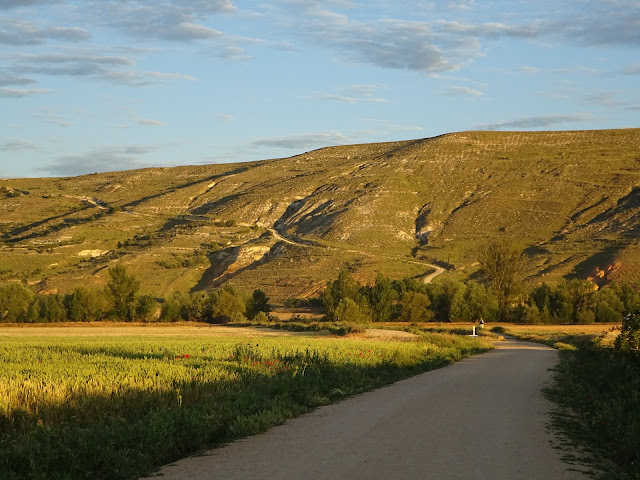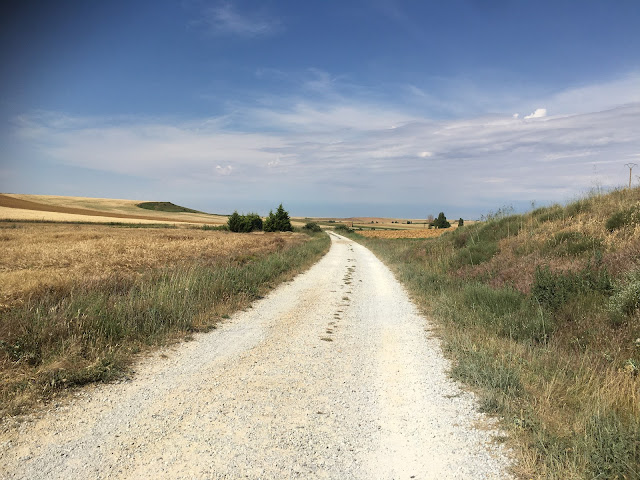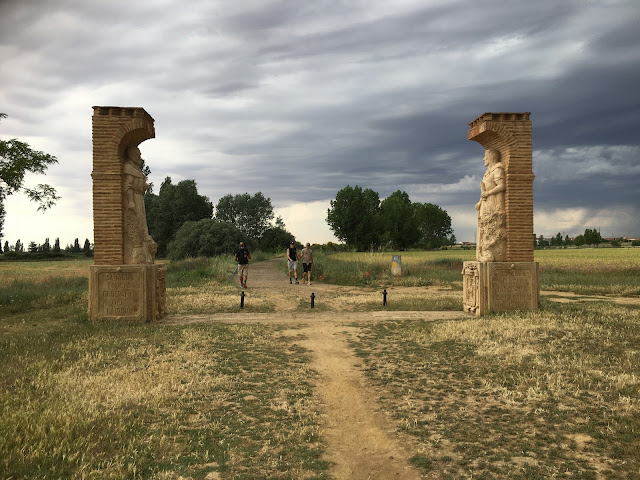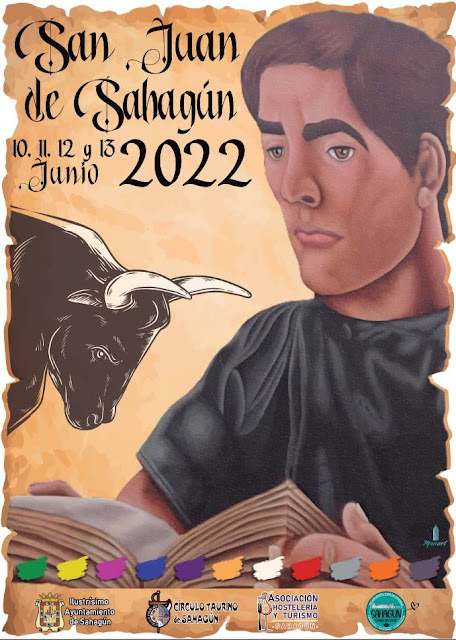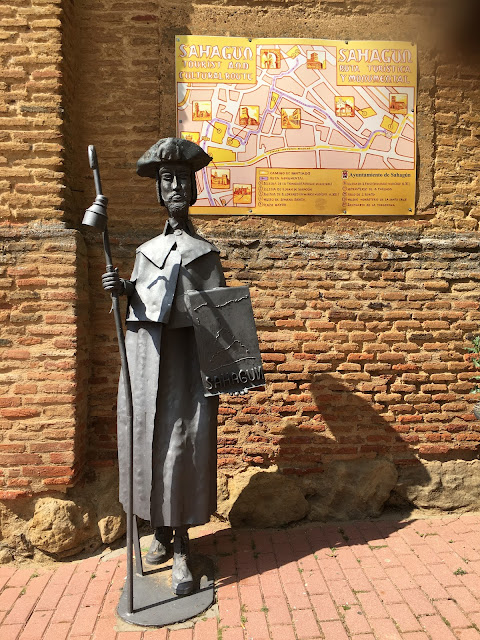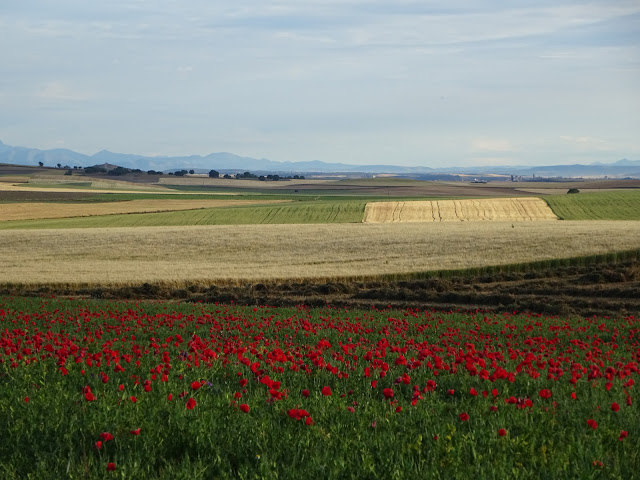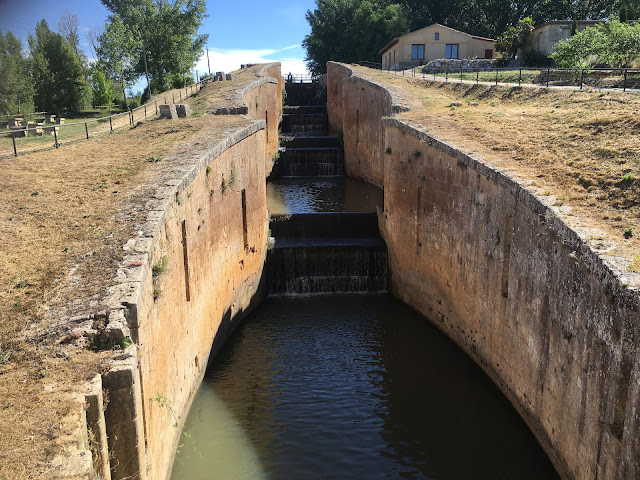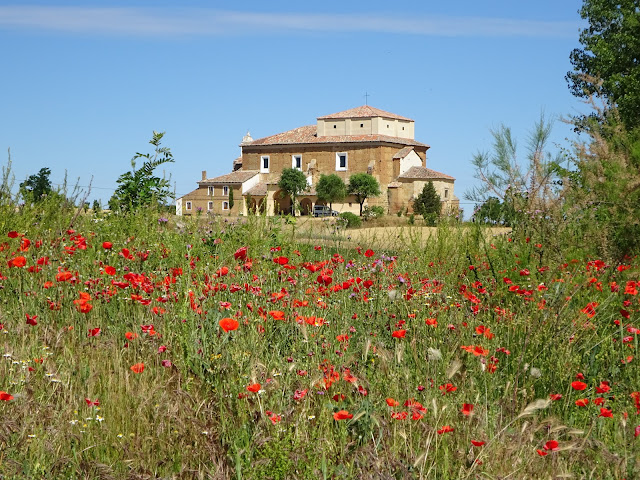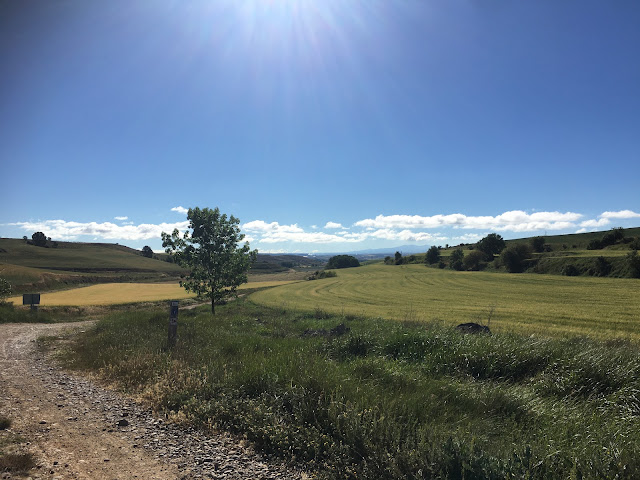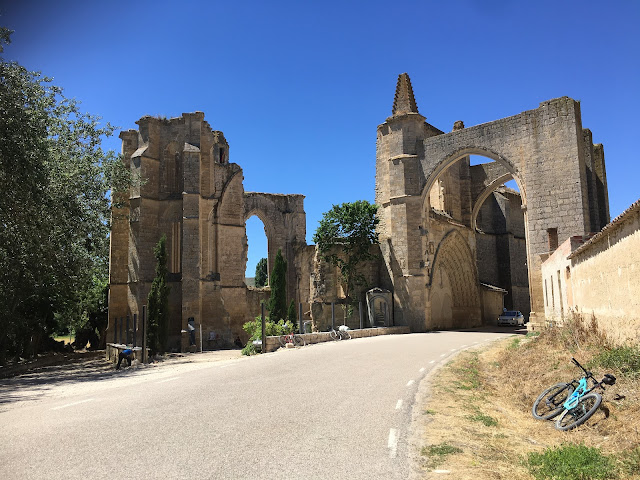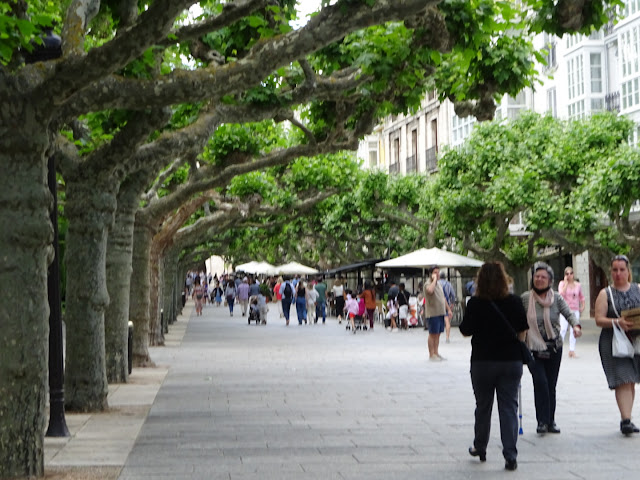 |
Final section of the Camino Francés - León to Santiago de Compostela Map data ©2022 Google |
I started my 3rd and final week of the Camino Francés late September 2022. I brought my Genny Mobility 2-wheeled self-balancing wheelchair to Spain in the back of my VW van which I parked on the outskirts of León before picking up where I left off in June 2022.
With a little over 300km to go and only a week to spare, I decided to complete the Camino rather than leaving a small section that would require a fourth visit at a later stage. This meant covering longer sections than I have previously done on my wheels and put a bit of pressure on my journey. In hindsight I should have given myself more time with my focus on where I was rather than making the final destination. For comparison, the general walking guide suggests León to Santiago with 12 stops, I was attempting it in 7.
This third session crossed from the central province of Castilla y León into the most north-western province of Spain called Galicia. Geographically the route starts in the north-west of the high central plateaux before crossing into Galicia with it's hilly green landscapes and temperate, rainy climate.
In lots of ways this was a more challenging route than previous sections, often hilly with many parts unsuited for wheeled pilgrims.
I had researched most of the route using Google Earth and a set of YouTube videos by John Sikora that showed speeded up video of the entire Camino. I was able to establish what was achievable on my wheels and where I needed an alternative route. This would generally be small sections where I would detour around steps or steep rocky terrain but in some places I decided to follow roads rather than an uncertain track that looked difficult for my wheelchair. Where the Camino ran immediately adjacent to a road, I would often be on the tarmac rather than the bumpy pavement for comfort.
One day I encountered another wheelchair pilgrim travelling in a very different style. A couple with her in a manual chair, pulled by her partner harnessed and leashed, pulling from the front - amazing.
Traveling longer distances meant I lost out on some of the community that you build traveling at the more moderate walking pace. This did not isolate me but the casual friendly encounters were generally all new when you have outpaced others. To counter this I made a point of joining others when I could, sharing food, rests and generally hanging out.
 |
| Breather at a water fountain |
This third section was also colder than my previous experience on the Camino. I appreciate weather is not a constant and had encountered rain way back in Pamplona but travelling light, I was carrying very limited clothing, not even a pair of socks. Additionally when travelling in the common European time zone spanning 2,500 km across Europe, the western part of Spain doesn't even get light until after 8:00 in the shoulder months. Mornings were cold and dark.
I completed the Camino within my timeframe and had adventures and many encounters along the way but unfortunately got increasingly sick towards the end. Unknowing I got Covid in the final few days days that floored me a bit. I had been Covid free entirely and was fully vaccinated and thinking I was immune, not so. Luckily I was able to get back to my van in Leon for safety and a route to Ireland that was my next port of call.
Arrival a the Catedral Basilica de Santiago de Compostela
My completed Credencial del Peregrino










